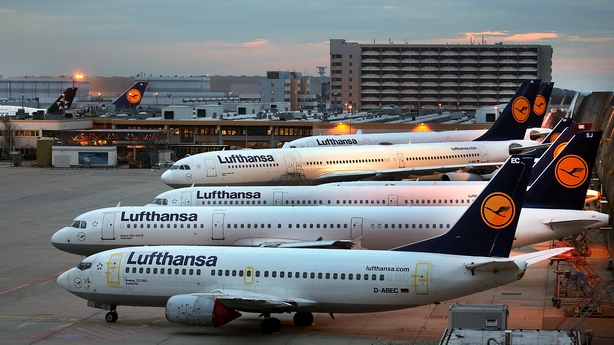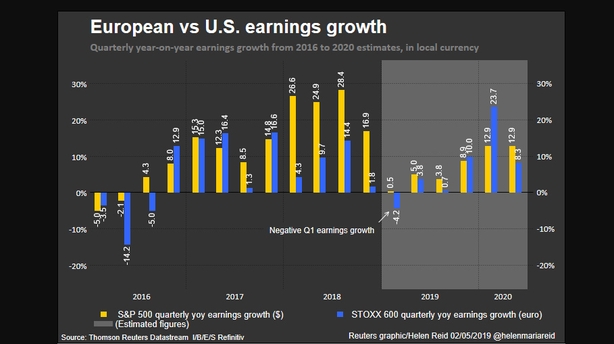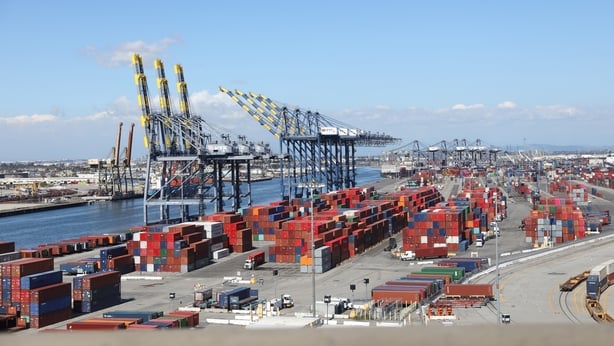European investors breathed a sigh of relief as more than half the region's major companies reported first-quarter earnings above market expectations, even if the bar was set very low ahead of results season.
The results so far underscore hopes that the worst is behind Europe Inc.
As the mid-way mark of the first quarter reporting season approaches, companies' stronger performance and the diminishing mentions of risks related to China and a global trade war are encouraging signs.
European earnings overall are still predicted to shrink by 4.2% from a year ago, the worst showing since the third quarter of 2016.
But numbers for the pan-European STOXX 600 companies have been better than feared - some 58% of them beat expectations, compared to a long-term average of 50% and tracking its best quarter in two years, Refinitiv data showed.
Industrials, a sector very closely geared to European and global economic growth, have been a success with earnings delivering a 5% surprise.
The sector is also one of the furthest along in reporting with more than 40% of companies' results published.
The data also showed Swedish truck maker Volvo, engineering group Alfa Laval and Airbus topped the charts in terms of positive surprises, while Lufthansa had the biggest negative surprise.

That spells a much stronger performance than dire manufacturing data would suggest. Euro zone factory activity contracted for a third month in a row in April.
Technology and healthcare also contributed to a higher number of beats in the March quarter, although only about a dozen companies from each of those sectors have reported so far.
SAP, Europe's biggest tech company, reported robust results and raised its outlook, helping the shares soar 12.5%.
A stellar sales increase at Sanofi's rare diseases Genzyme unit also boosted the French drug maker's shares.

But the latest round of better than expected results, is partly a reflection of companies in Europe becoming more savvy with their guidance and managing expectations ahead of results.
Investors have thus been cautious about extrapolating this to a stronger underlying economy. There has however been a marked shift in the pressure points for companies.
China was mentioned as a positive driver much more than a negative, according to BAML strategists, a sign massive stimulus in the world's second biggest economy may have had an impact.
Luxury group LVMH said demand had picked up in mainland China, boosting its first-quarter sales and driving its shares up nearly 5% to a record high.

Britain's pending exit from the European Union and the US-China trade war were also blamed less often for poor performance.
Another area of improvement has been the frequency of cuts to profit forecasts - so far this quarter has seen the fewest profit warnings at the start of earnings season in a year.
Companies across sectors have also guided investors to a stronger second half.
Earnings growth expectations, having already fallen significantly, should stabilise at this level, said Emmanuel Cau, head of European equity strategy at Barclays.
After a blistering start to the year for global stocks, investors are finding it hard to make head or tail of a rally that caught many by surprise as they recovered from a harsh sell-off late last year.
Mixed economic signals do not help paint a clearer picture.
Stronger earnings from industrial companies fly in the face of data points like euro zone industry sentiment, which fell for a fifth consecutive month in March and was well below market expectations.
But better reports from the companies most sensitive to growth could be an early sign of a pick-up in activity.
"The recession might have been priced out but the recovery has not yet been priced in," said Andrew Milligan, head of global strategy at Aberdeen Standard Investments.
But Milligan stopped short of outright positivity on Europe, saying the possibility of an escalation in a trade dispute with the US is part of his decision to stick with a neutral position in his global portfolio.
Politics aside, the holy grail for investors in Europe remains economic improvement - and that could still be a while away.
"Is Europe going to be a top pick? Only if we start to see some very definite signs that the European economy is turning and turning up very sizeably. We're just not seeing that," added Milligan.

